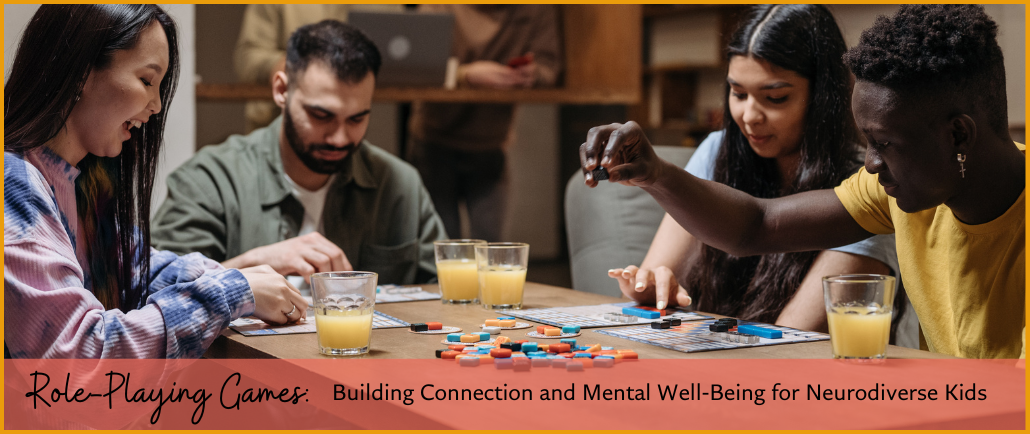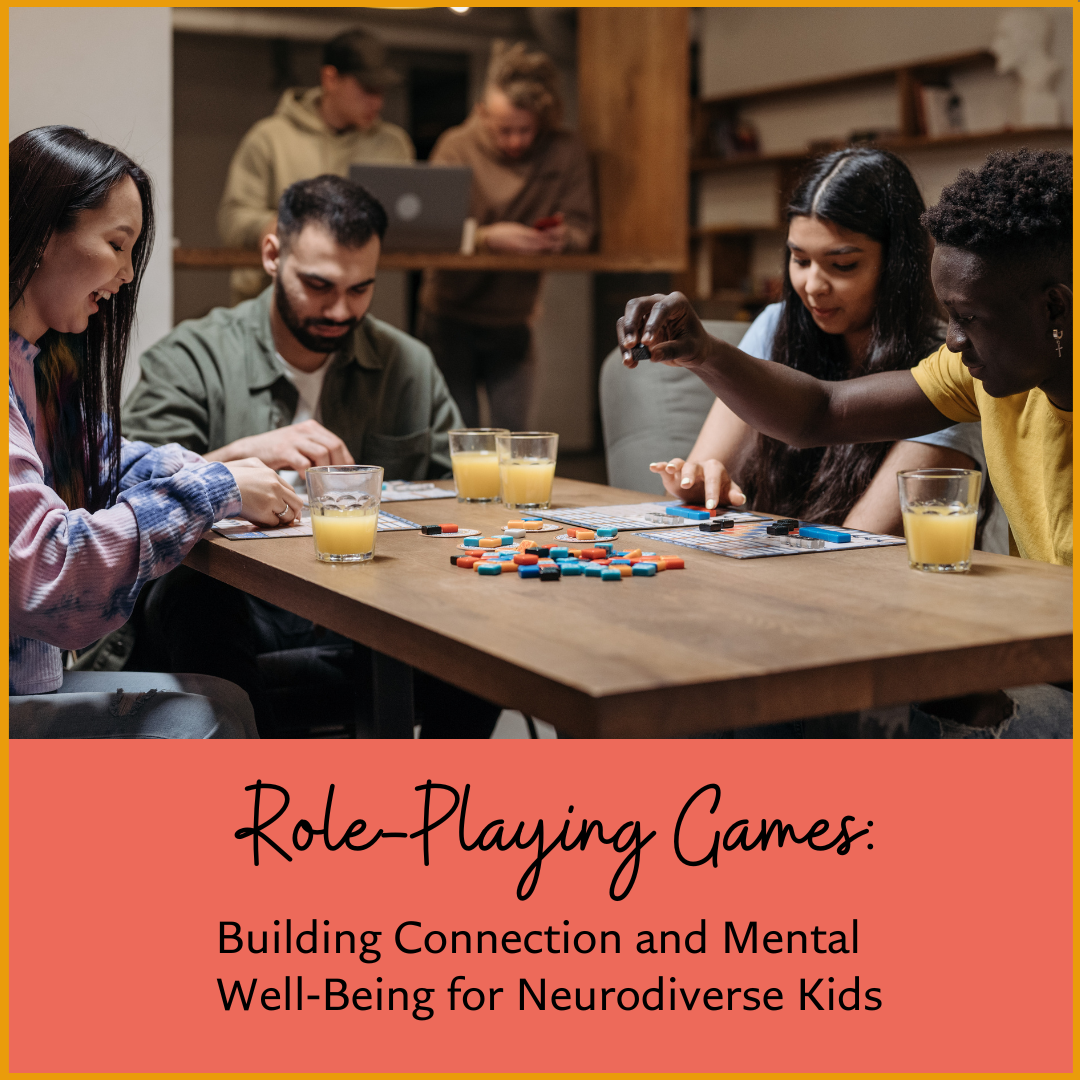
Role-Playing Games: Building Connection and Mental Well-Being for Neurodiverse Kids
Role-playing games (RPGs) have long been cherished for their creativity and storytelling. But beyond being just a form of entertainment, these games have emerged as powerful tools for neurodiverse children, particularly those on the autism spectrum. Through collaborative storytelling, problem-solving, and social interactions, RPGs provide an opportunity to build crucial social and emotional skills. More importantly, they help kids forge meaningful connections that can combat feelings of isolation and alienation.
A Safe Space for Social Exploration
For many neurodiverse children, understanding social cues, maintaining conversations, and reading body language often pose significant challenges. This can lead to feelings of loneliness and alienation. RPGs create a structured but flexible, environment where they can practice social interactions in a more controlled, low-stress setting.
In a typical game, players assume fictional roles and work together to solve problems. This setup encourages cooperation, communication, and negotiation—skills that are vital for real-world interactions. For kids that may struggle with expressing their own needs or understanding others’ perspectives, role-playing as a character offers a buffer and an opportunity to experiment with social behaviors and responses in a way that feels safe and manageable.
According to a study highlighted in Ars Technica, by stepping into different characters’ shoes, neurodiverse kids are encouraged to think beyond their own perspectives, practicing empathy and understanding in ways that traditional social settings might not allow.
Emotional Regulation Through Imaginative Play
Managing emotions like frustration, anxiety, and excitement is another area where neurodiverse kids often face challenges. RPGs, with their structured narratives and fictional scenarios, offer a unique opportunity to practice emotional regulation in a low-stakes environment. For instance, a player might find their character facing uncertainty or needing to solve a dilemma under pressure. By navigating these stressors in a controlled game environment, the player can practice managing their anxiety and frustrations which translates to improved emotional regulation in real-life situations, where the stakes are higher.
A Sense of Belonging and Community
Perhaps one of the most powerful aspects of RPGs is their ability to create a sense of community. Many neurodiverse kids experience social isolation, finding it difficult to connect with peers in traditional settings. This can lead to loneliness and depression. RPGs provide a shared activity where every participant’s contribution is necessary for success. This fosters an inclusive environment where children, regardless of their social or cognitive challenges, feel valued.
In a British article in I Am Autism, many parents and therapists have reported noticeable improvements in children’s self-confidence after participating in RPGs. The sense of achievement that comes from completing a quest or contributing to a team’s success can have profound effects on their self-esteem, translating into increased confidence in real-world interactions.
Making Lasting Friendships
One of the most heartwarming outcomes of RPG participation for neurodiverse children is the development of genuine friendships. For kids who might otherwise struggle to form and maintain relationships, RPGs offer a natural platform for connection. The shared goal of advancing a game’s story creates a space for organic relationship-building, which is often more challenging in traditional social settings.
Connection, Growth, and Mental Health
Role-playing games offer more than just entertainment—they provide neurodiverse children with a unique platform for social, emotional, and cognitive development. Additionally, these games foster a sense of belonging, helping neurodiverse kids feel less isolated and more connected to the real world around them.
For more information about utilizing role playing games and other socio-emotional exploration activities, please contact Lumina Counseling Therapist Tasia Kristich, AMFT at [email protected]

